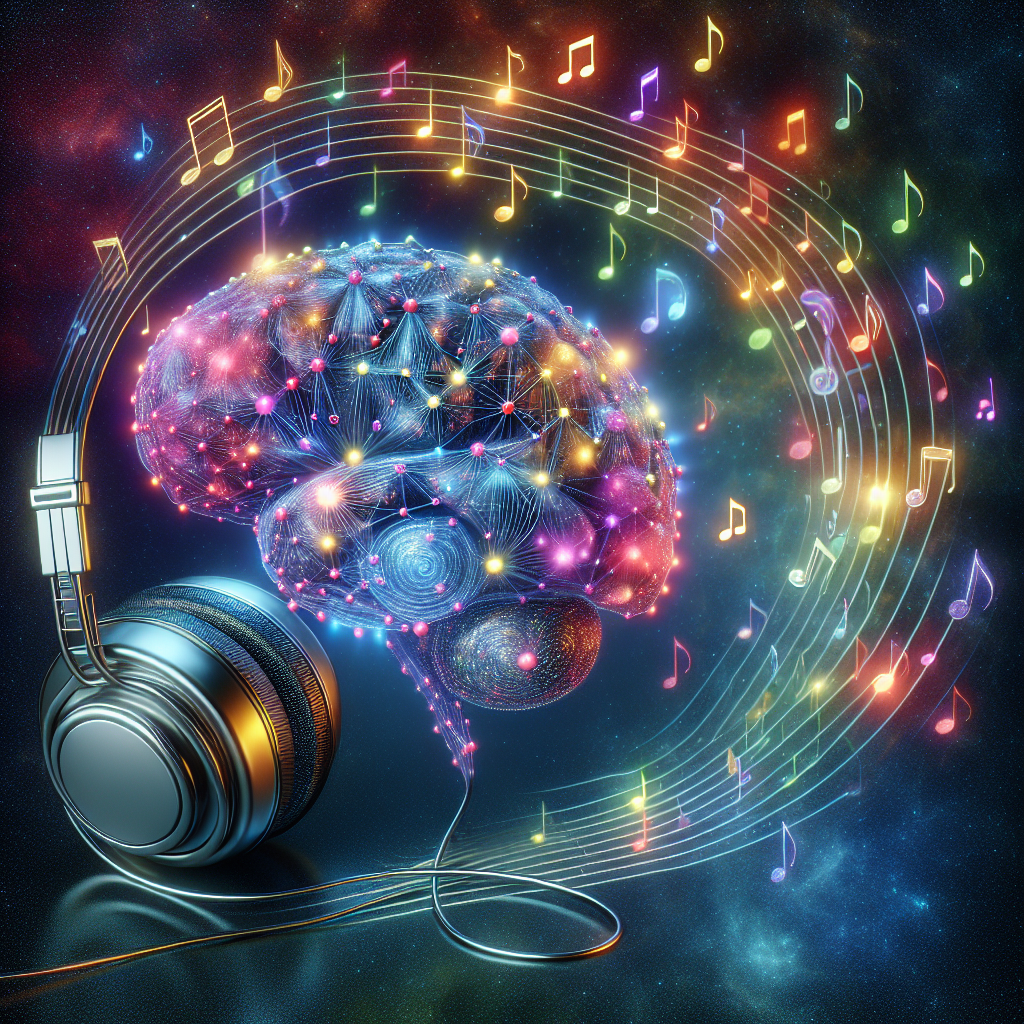Music is a universal language that transcends cultural, linguistic, and geographical boundaries. It has the power to evoke emotions, connect people, and tell stories in ways that words alone cannot. With the advancement of technology, particularly artificial intelligence (AI), there is growing interest in exploring the potential of AI to help create music that is truly universal.
AI has already made significant strides in various creative fields, including music composition. There are AI-powered platforms and tools that can generate melodies, harmonies, and even entire songs based on algorithms and data analysis. These AI systems can analyze vast amounts of musical data, such as song structures, chord progressions, and rhythmic patterns, to create new music that is inspired by existing styles and genres.
But can AI help us create music that is truly universal? Can it break down barriers and bring people together through music in ways that were previously not possible? These are questions that researchers, musicians, and music enthusiasts are exploring as they delve deeper into the intersection of AI and music creation.
One of the key advantages of using AI in music composition is its ability to learn and adapt to different musical styles and traditions. By analyzing a diverse range of musical data from different cultures and genres, AI systems can develop a more comprehensive understanding of what makes music universal. This can help AI-generated music resonate with a broader audience and appeal to people from different backgrounds.
Furthermore, AI can help democratize music creation by providing tools and resources to aspiring musicians and composers who may not have access to traditional music education or training. AI-powered platforms can help users experiment with different musical ideas, explore new sounds, and unleash their creativity in ways that were previously limited by technical skills or resources.
Additionally, AI can help music creators overcome creative blocks and spark new ideas by providing them with inspiration and guidance. For example, AI systems can suggest melodic variations, harmonies, or rhythm patterns based on the user’s input, helping them explore different musical possibilities and push the boundaries of their creativity.
However, there are also challenges and limitations to consider when using AI in music composition. One of the main concerns is the risk of homogenizing music and erasing cultural diversity. AI systems are trained on existing musical data, which may predominantly reflect Western music traditions and styles. This can result in AI-generated music that lacks diversity and fails to capture the richness and complexity of different musical cultures.
To address this challenge, researchers are exploring ways to incorporate diverse musical influences and cultural perspectives into AI systems. By including a wide range of musical data from different regions and genres, AI can learn to create music that reflects the diversity of human creativity and expression. This approach can help ensure that AI-generated music is inclusive, respectful of cultural heritage, and resonates with a global audience.
Another concern is the loss of human touch and emotion in AI-generated music. While AI systems can analyze and generate music based on algorithms and data, they may struggle to convey the depth of emotion, nuance, and personal expression that human musicians bring to their performances. This can result in music that feels mechanical, robotic, or lacking in soul.
To address this limitation, researchers are exploring ways to enhance AI systems with emotional intelligence and creative intuition. By incorporating elements of human expression, such as emotion recognition, improvisation, and storytelling, AI-generated music can become more nuanced, authentic, and engaging. This can help bridge the gap between AI and human musicians, creating a harmonious blend of technology and creativity in music composition.
In conclusion, AI has the potential to help us create music that is truly universal by breaking down barriers, inspiring creativity, and fostering cultural diversity. By harnessing the power of AI in music composition, we can explore new possibilities, push the boundaries of artistic expression, and connect with people around the world through the universal language of music. While there are challenges and limitations to overcome, the future of AI-generated music holds promise for creating a more inclusive, diverse, and vibrant musical landscape for all to enjoy.
FAQs:
1. Can AI truly help us create music that is universally appealing?
AI has the potential to help create music that resonates with a broad audience by analyzing diverse musical data and incorporating different cultural influences. While there are challenges to overcome, AI can play a significant role in breaking down barriers and bringing people together through music.
2. How can AI enhance the creativity of music composers and musicians?
AI can provide tools and resources to help musicians explore new musical ideas, overcome creative blocks, and experiment with different styles and genres. By offering inspiration and guidance, AI can enhance the creative process and empower musicians to push the boundaries of their artistic expression.
3. What are the risks of using AI in music composition?
One of the main risks of using AI in music composition is the potential loss of cultural diversity and human expression. AI systems are trained on existing musical data, which may reflect biased or limited perspectives. To address this challenge, researchers are exploring ways to incorporate diverse musical influences and emotional intelligence into AI systems.
4. How can we ensure that AI-generated music respects cultural heritage and traditions?
To ensure that AI-generated music is inclusive and respectful of cultural diversity, researchers are working to incorporate a wide range of musical data from different regions and genres. By training AI systems on diverse musical influences, we can create music that reflects the richness and complexity of human creativity and expression.
5. What is the future of AI-generated music?
The future of AI-generated music holds promise for creating a more inclusive, diverse, and vibrant musical landscape. By harnessing the power of AI in music composition, we can explore new possibilities, push the boundaries of artistic expression, and connect with people around the world through the universal language of music.

